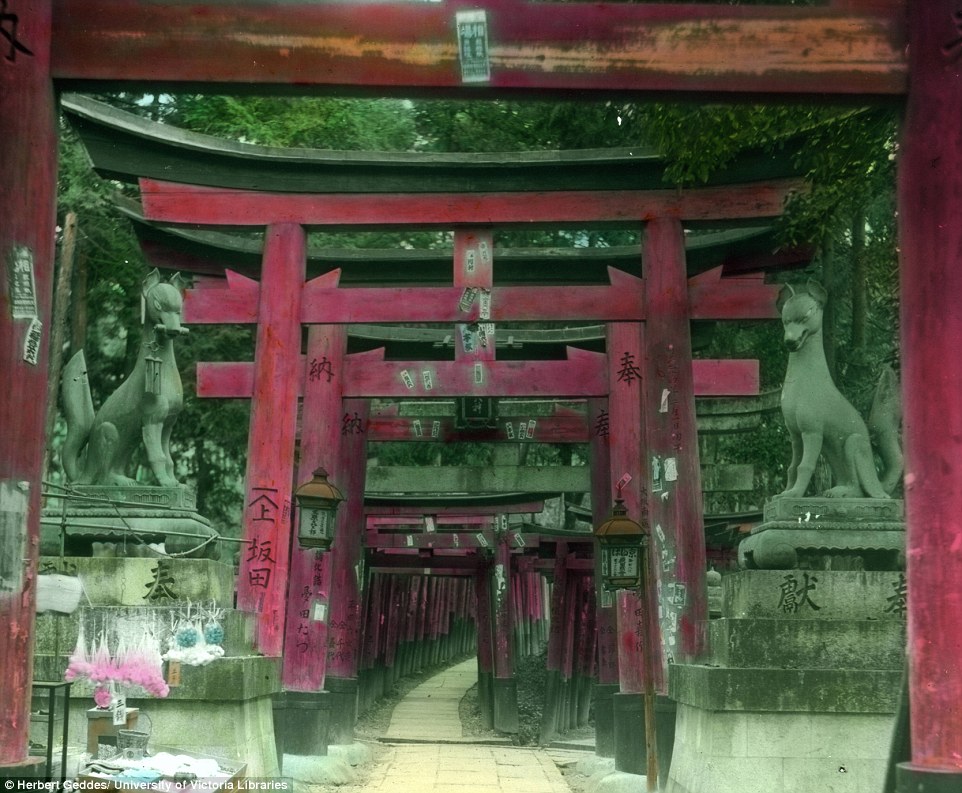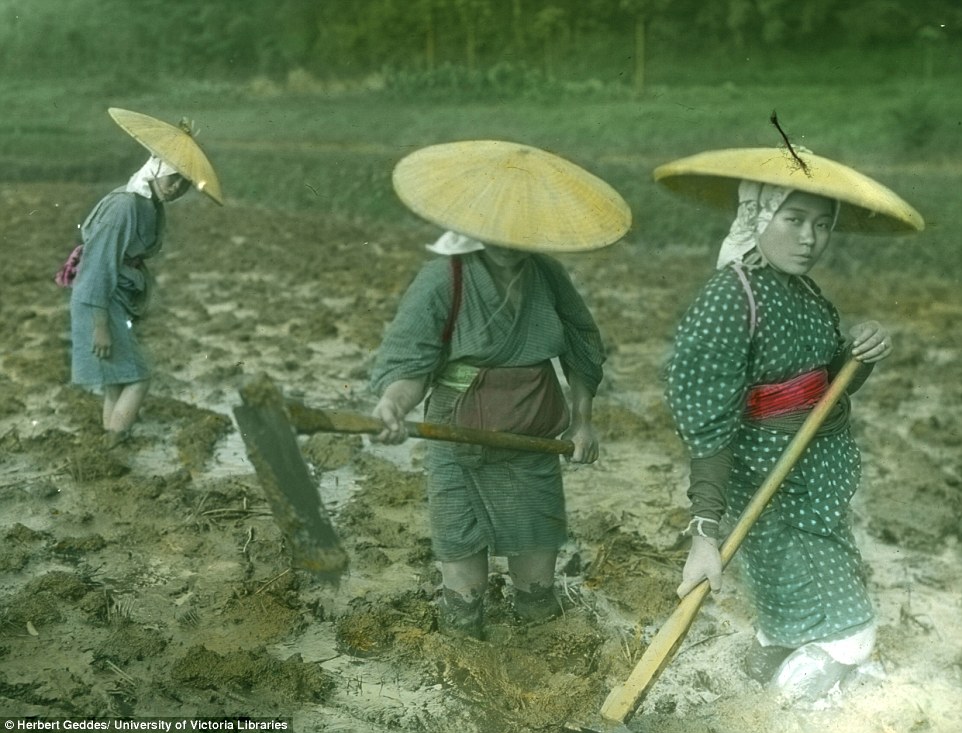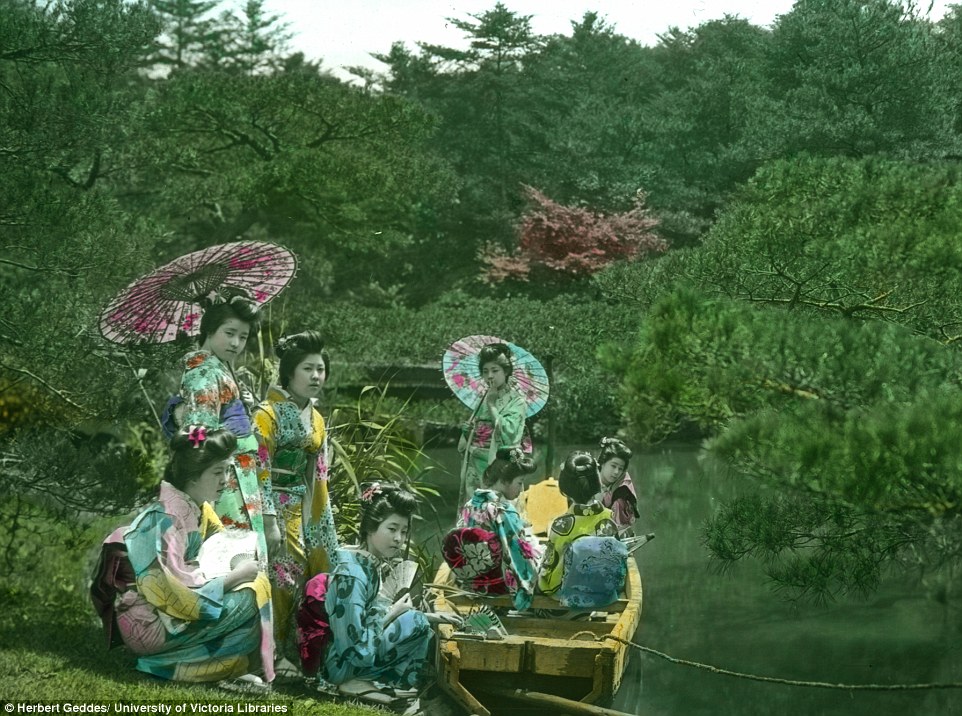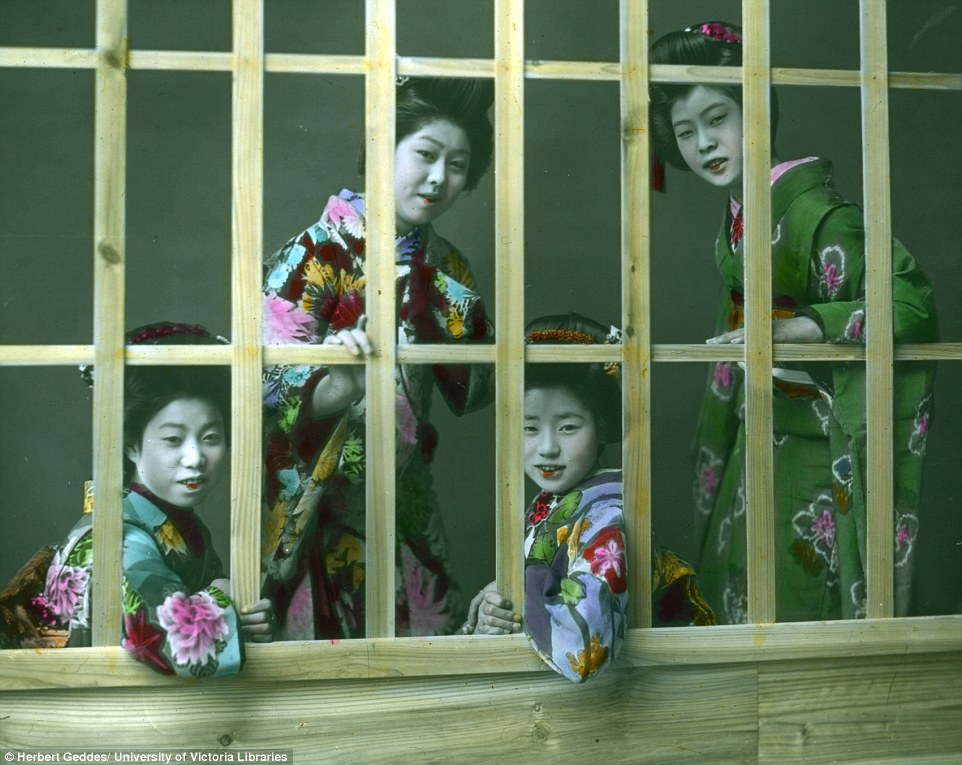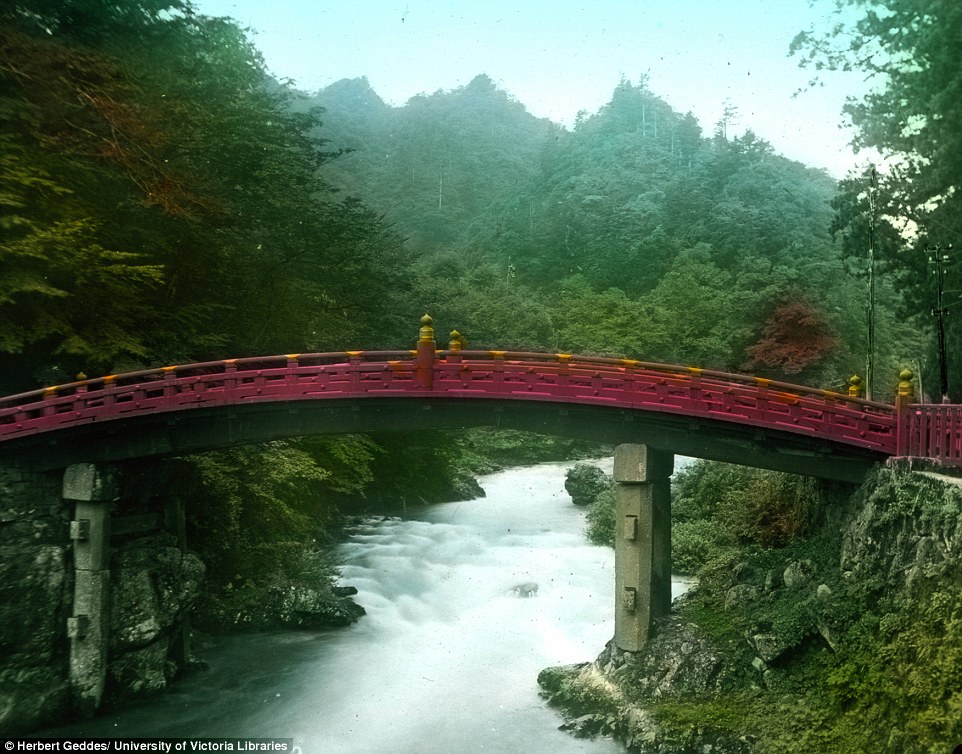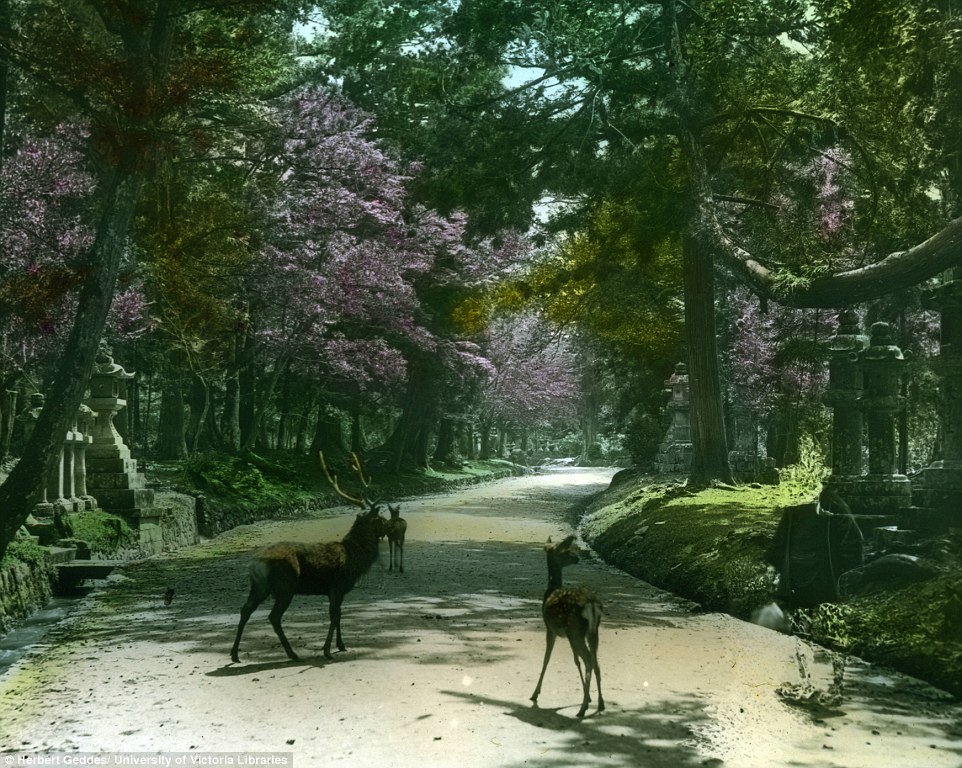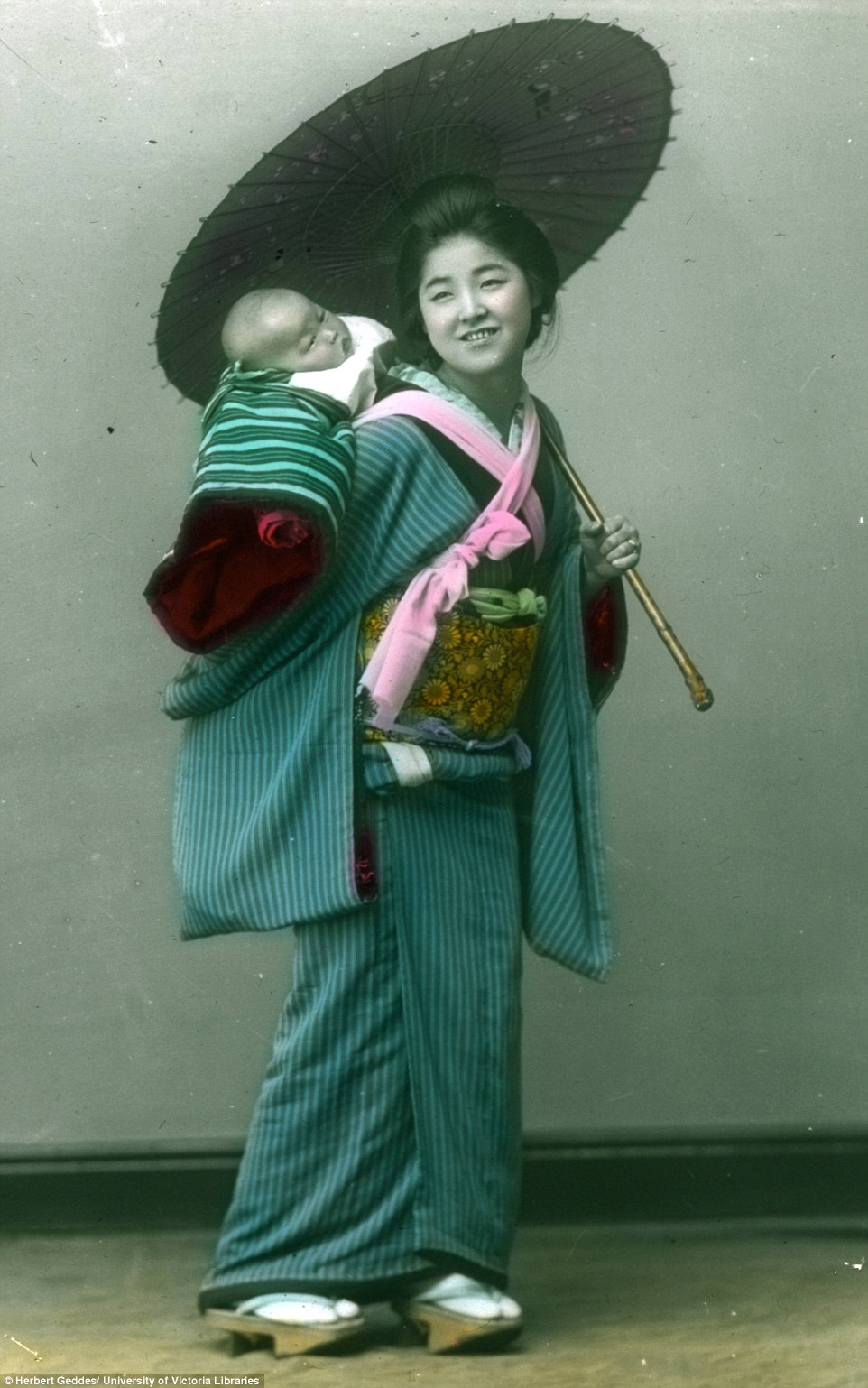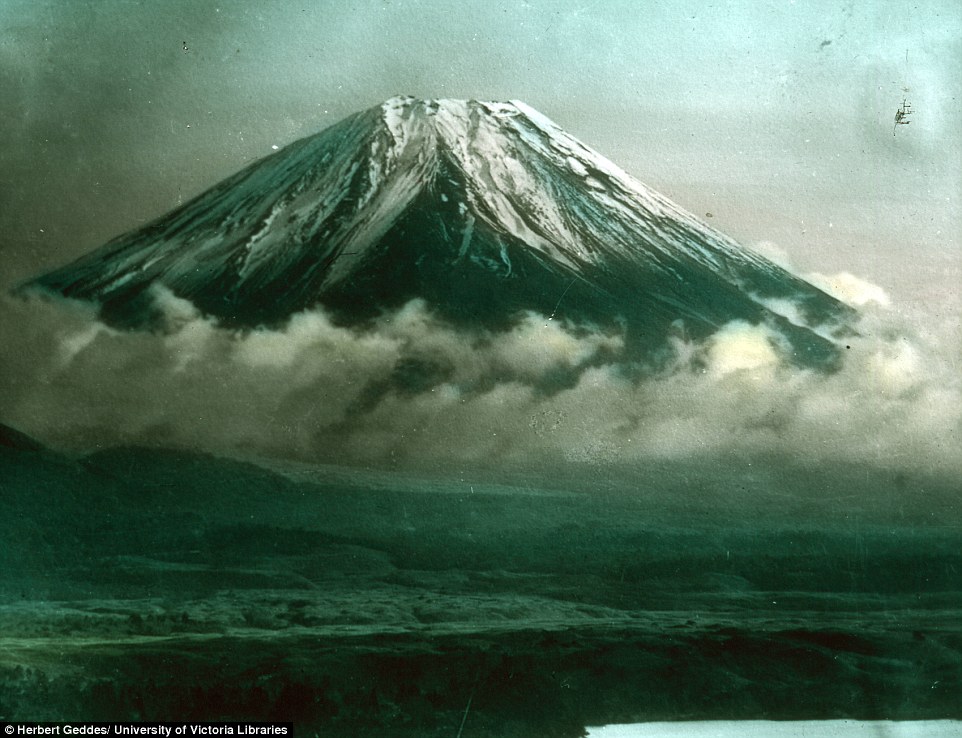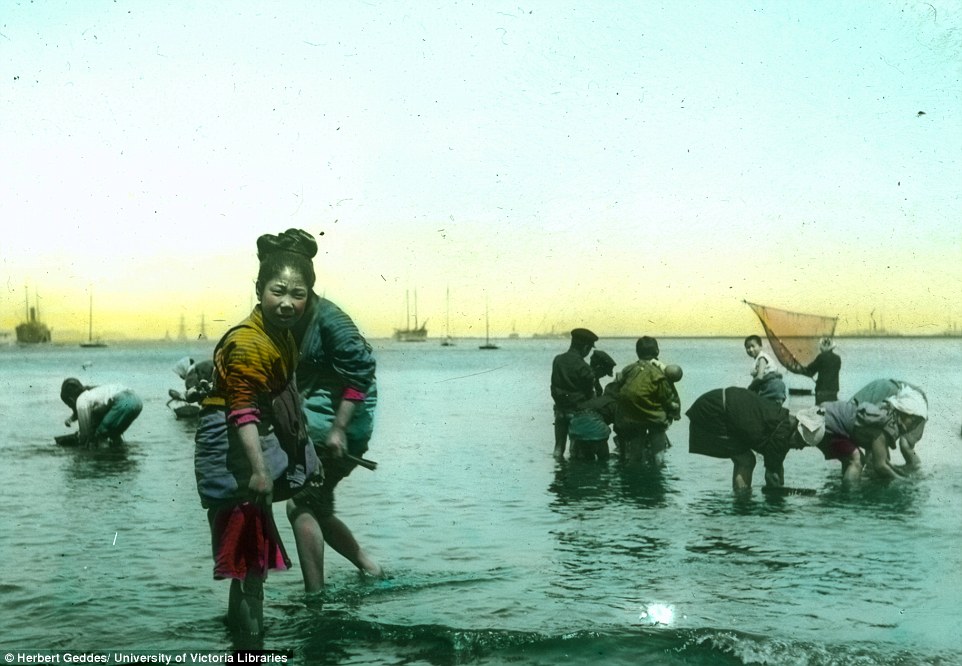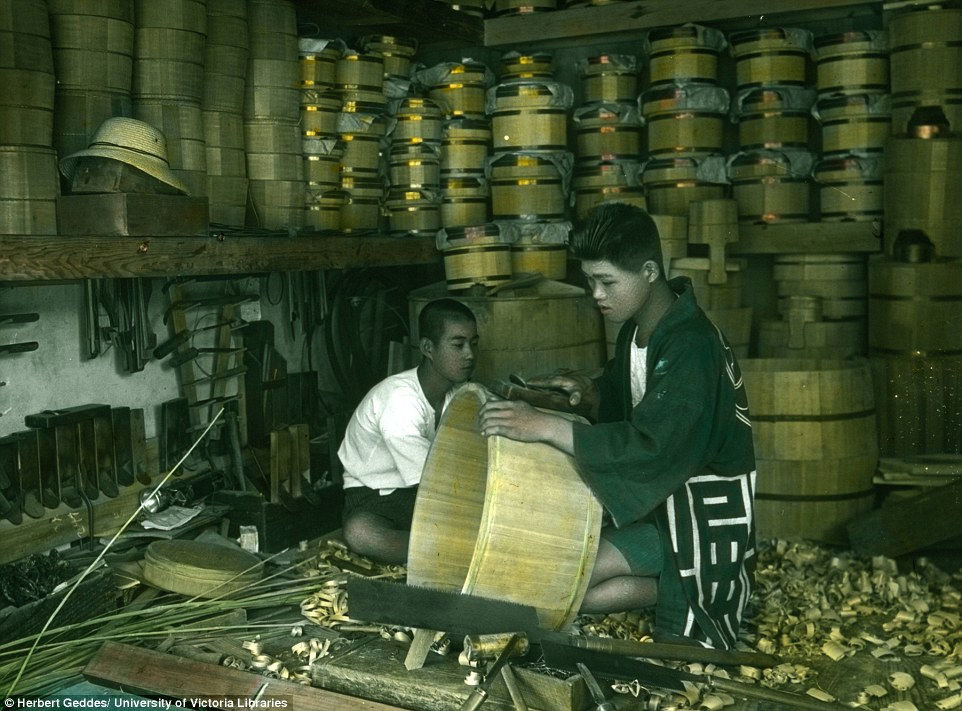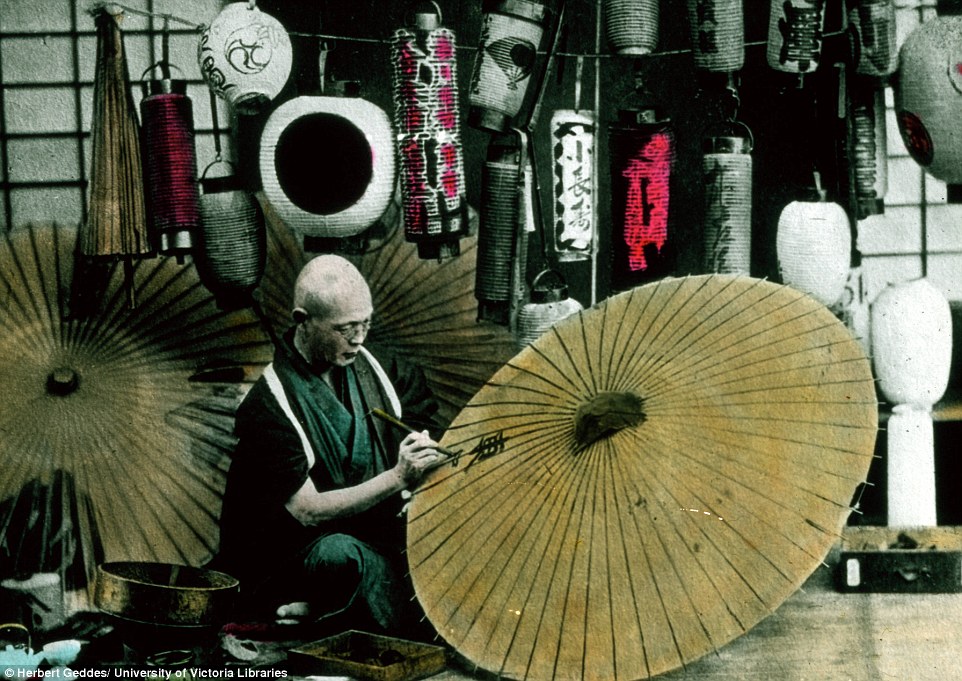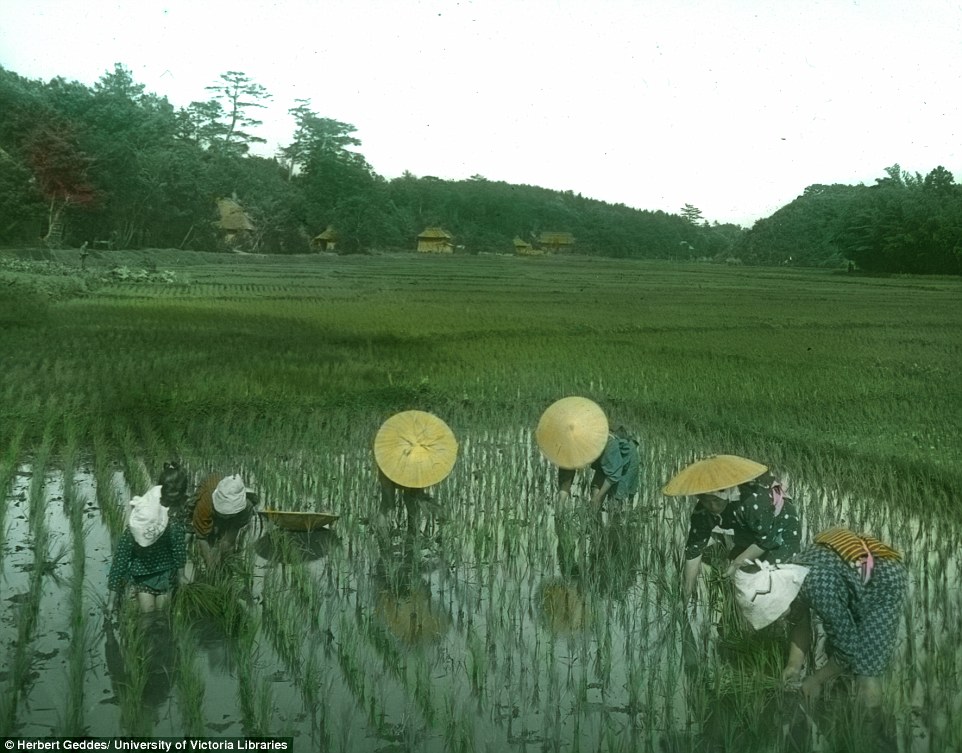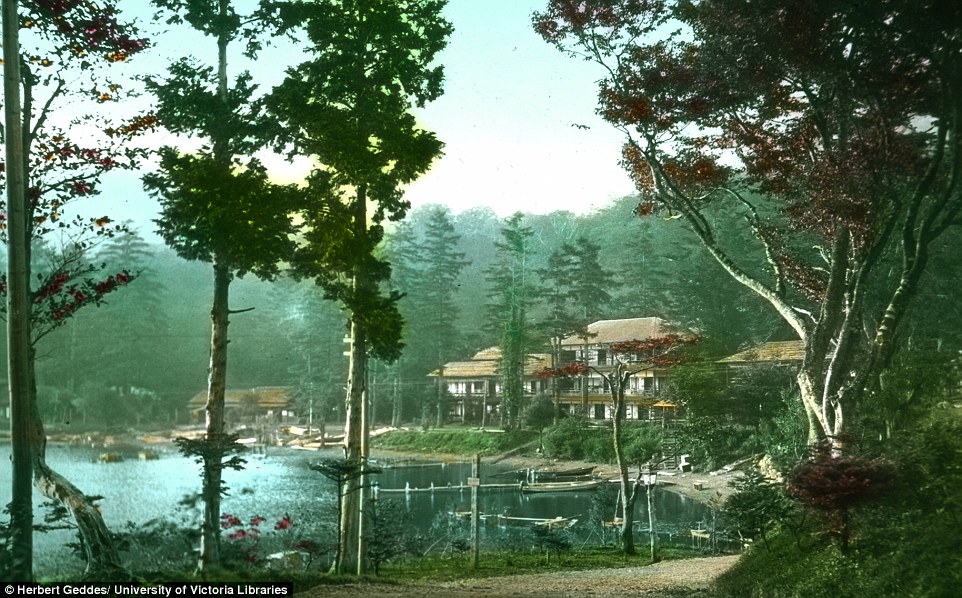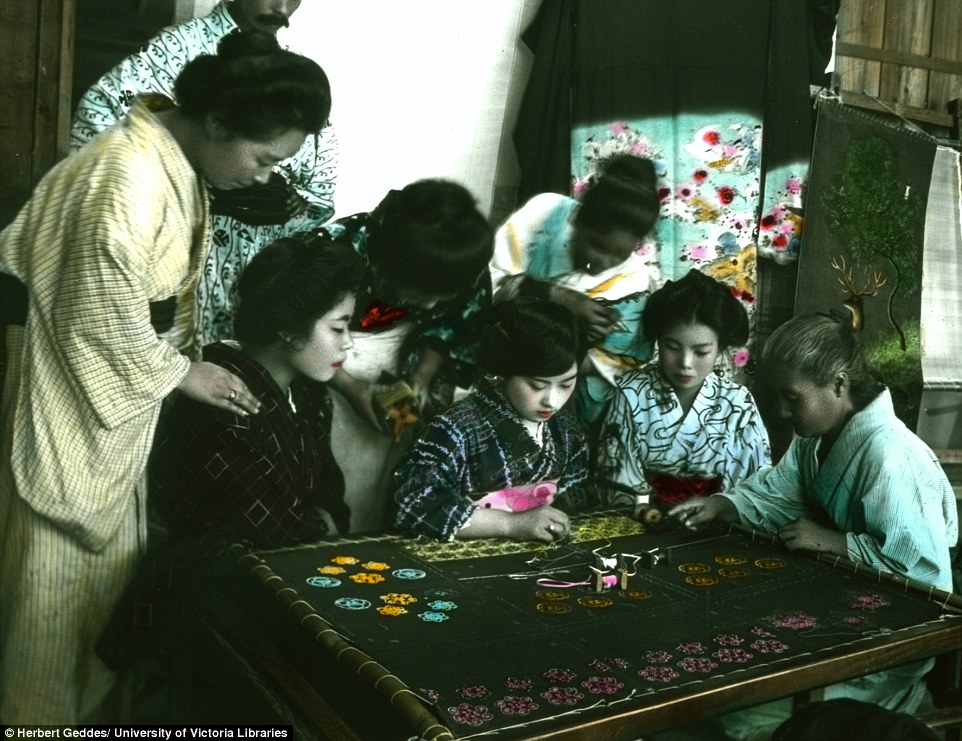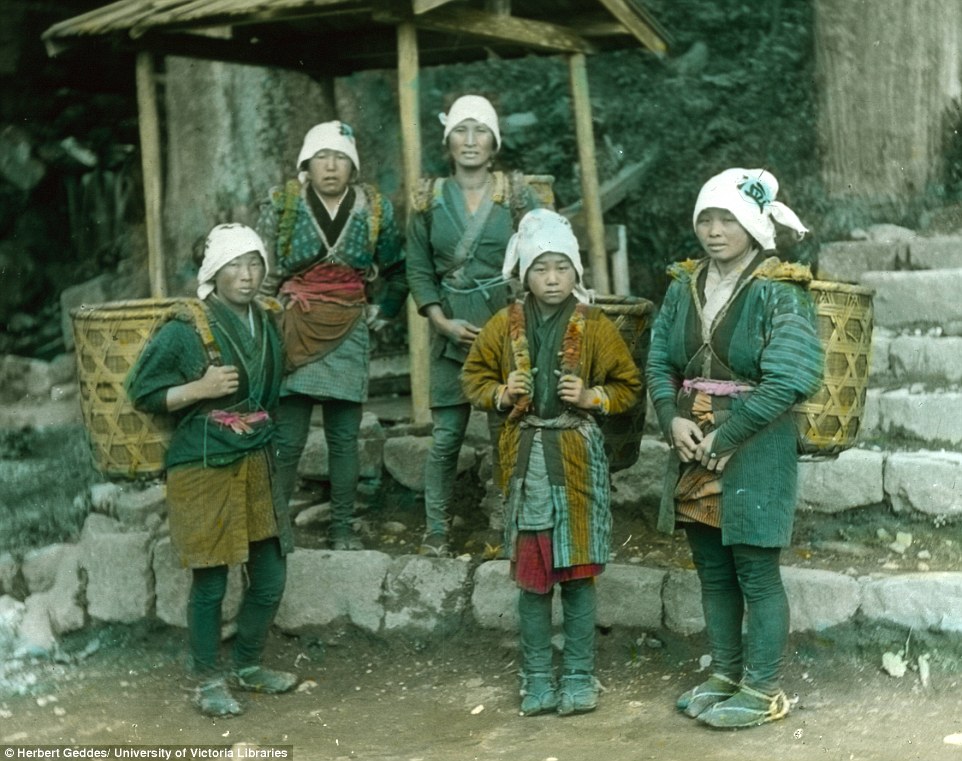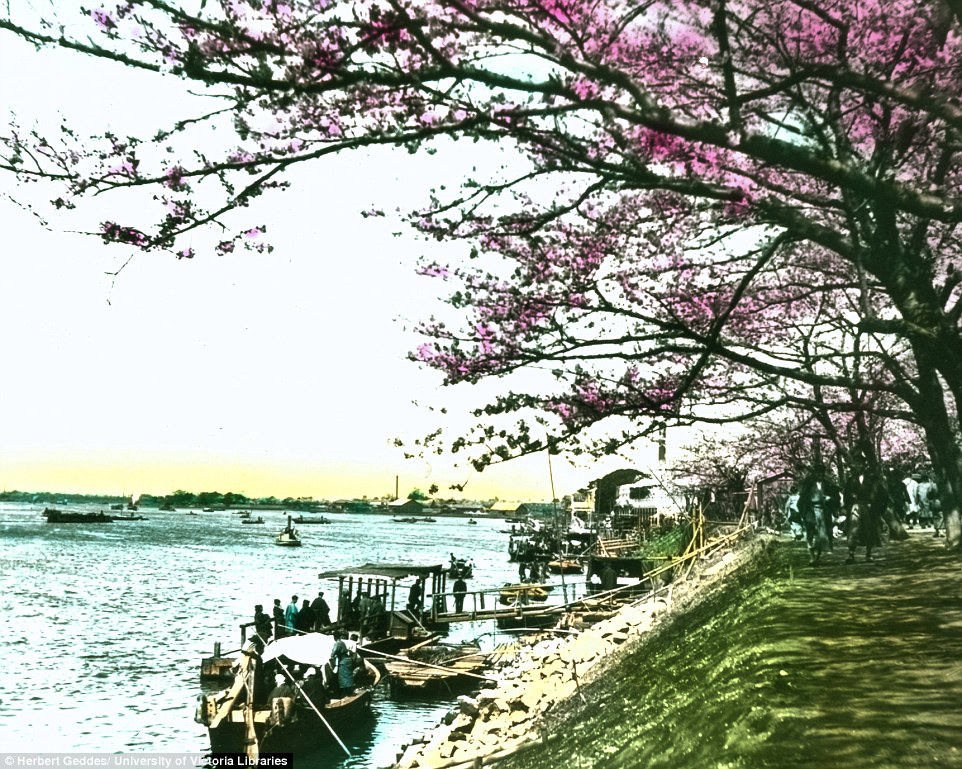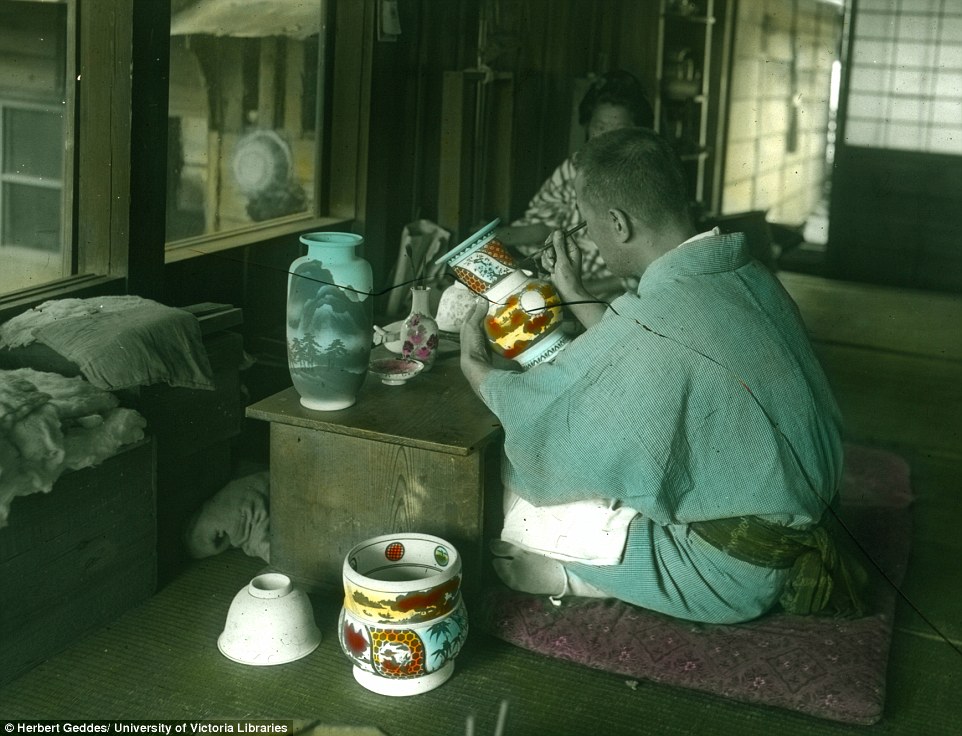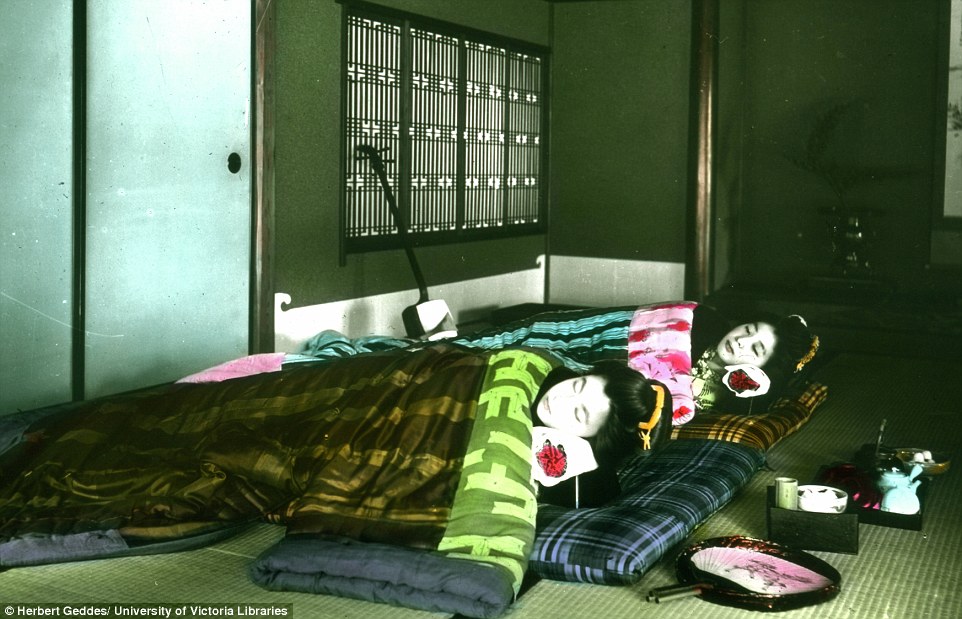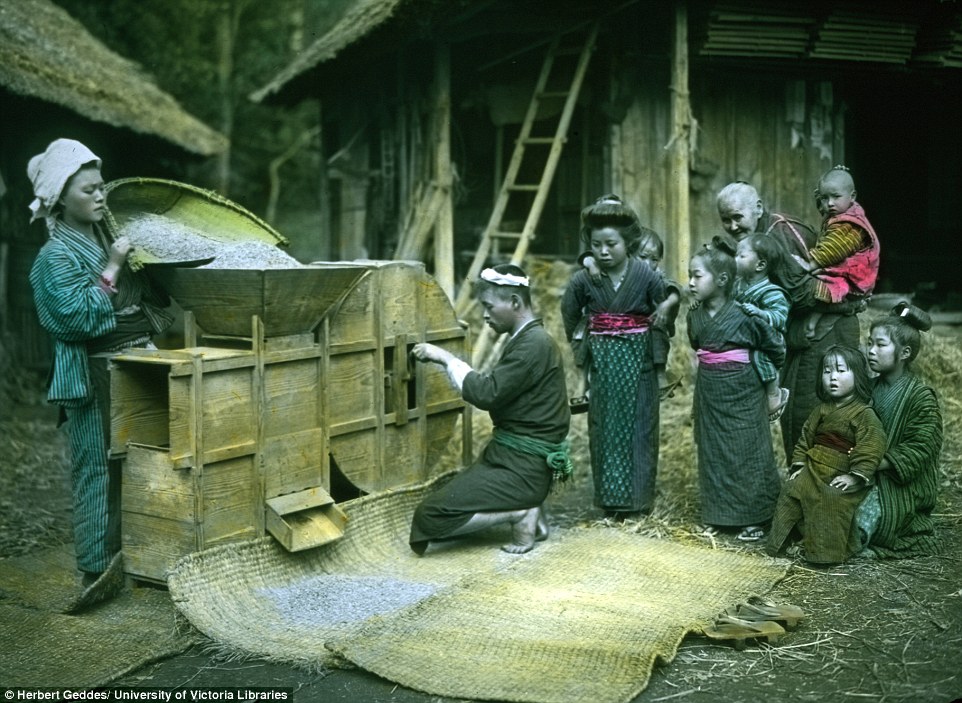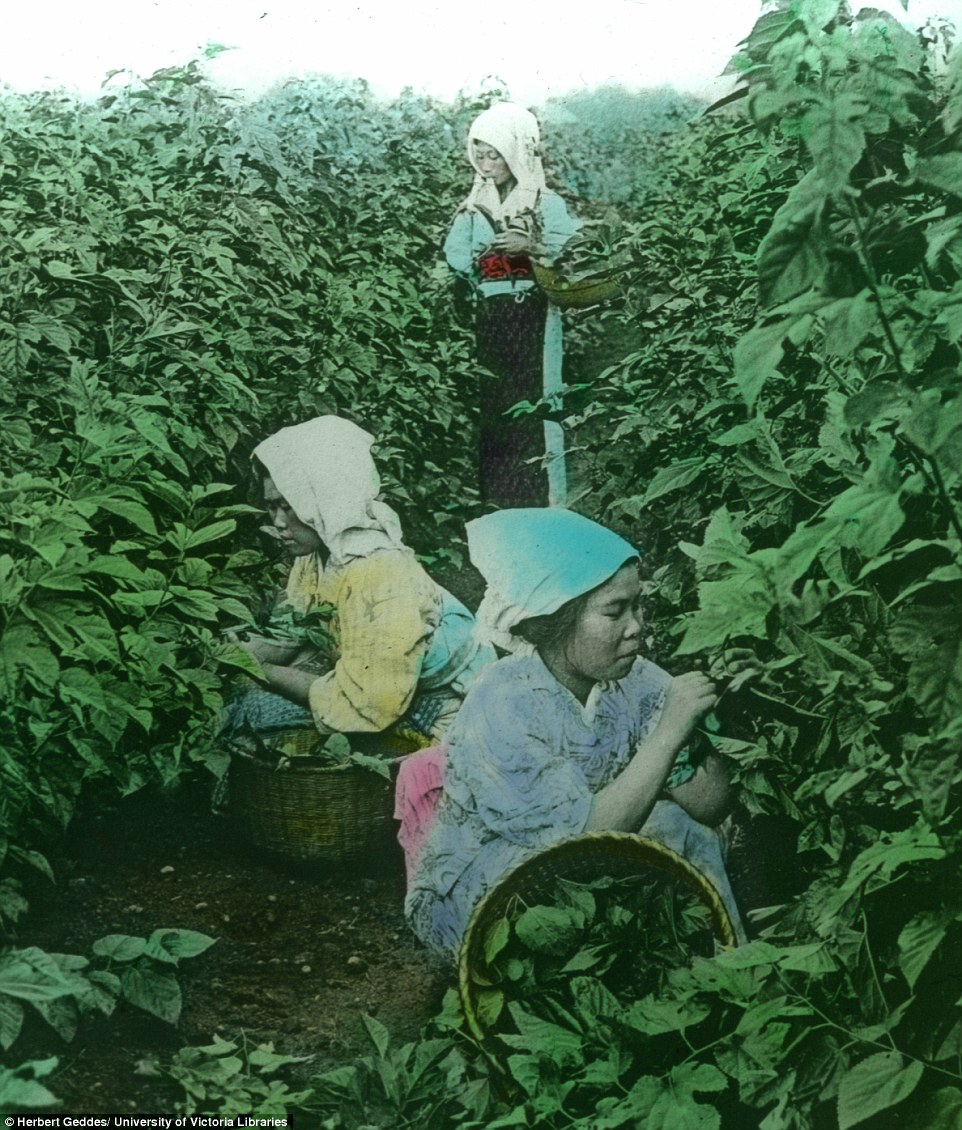1908年的日本封建时代的宁静和永恒的美 [英国媒体]
今天的日本是世界上科技最为发达的现代化国家,但是1908年的日本还处在原始的封建社会,这些照片反映了那个时代生活的宁静和永恒之美。英国网友:那些照片里的人可能会犯下罪行。年轻人也许会成为1937年南京事件中的士兵也许会成为发动二战的军官。
Fascinating photos show the serene and timeless beauty of feudal Japan as it stood on the brink of modernisation in 1908
迷人的照片展示了1908年处于现代化边缘上的日本封建时代的宁静和永恒的美
●The spellbinding pictures were captured by Herbert Geddes who worked in the country at the end of the Meiji era
这些迷人的照片由在日本明治时代晚期工作的Herbert Geddes 拍摄
●At this time, education, railways and technology were rapidly developing, changing the face of the country forever
那个时候,教育,铁路和技术才刚刚开始发展,然后永久的改变了整个日本的面貌
●His collection captured the essence of the breathtaking country, show casing the beauty of its workers and scenery
他收藏的照片反映了这个国家令人惊叹的原初风貌,展现了劳动者和风景之美
Today Japan is the most technologically advanced country in the world, but in 1908 it was an isolated feudal society - and these pictures capture the serene and timeless beauty of life at that time.
今天的日本是世界上科技最为发达的现代化国家,但是1908年的日本还处在原始的封建社会,这些照片反映了那个时代生活的宁静和永恒之美。
The time capsule pictures were taken by Herbert Geddes around 1908. He was a manager for Canadian import/export corporation G.R. Gregg and Company and was sent to work in foreign trade hub Yokohama.
这些迷人的照片由Herbert Geddes 拍摄与1908年。他当时为加拿大进出口公司GR。Greeg工作,公司派遣他去往日本横滨出差。
His collection preserved the essence of the breathtaking country - before it changed forever.
他收藏的照片反映了这个国家令人惊叹的原初风貌,在它永久改变之前。
They were taken during the Meiji period, a pivotal time in the country's history when a burst of development transformed the society to its modern form.
这些照片拍摄于明治时代,是日本历史开启发展通往现代之路的关键时刻。
Towards the end of the period Japan was positioning itself as competitor with the wealthy nations of the West. Railways and telegraph lines helped to link up urban areas with those in picturesque corners of Japan and thousands of students were sent for a Western education.
这个时代,日本开始把自身定位成为西方文明国家的竞争者。铁路和电话线帮助日本把城市和他们风景如画的乡村连接起来同时数以千计的学生被派往西方接受教育。
Devoid of any brash industrial developments, Geddes' work captured the beauty of both the people and landscape of Japan.
没有凌乱的工业设备,Geddes的工做捕捉到了日本人民和旷野之美。
Day to day business: A man with a bright red rickshaw on a picturesque tree-lined dirt road
日复一日的商贩:一名男性和他的鲜红色的黄包车在风景如画的林间土路上
Two little girls carrying babies on their back watch an older woman grind produce on a raised stone platform
两个小女孩背着婴儿观看一名老年女性在凸起的石磨上研
People on boats on waterways through vast rice fields, in the shadows of Mount Fuji
富士山的阴影中,船上的人通过稻田中的水路
Grand entrance: A series of captivating red wooden Torii gateways with stone animals on pedestals
大型入口:一系列迷人的红色木质鸟居和位于基座上的石雕动物
Working hard: Women preparing a rice field in mud wearing traditional conical hats
努力工作:戴着传统圆锥形帽子的女性在稻田泥地中
Eight young women in kimonos enjoy the sun dressed in colourful outfits with kimonos and parasols, including four on a wooden boat
八名年轻女性穿着五颜六色的和服和阳伞享受着太阳,其中四个在木船上
A group of women smiling and leaning through an opening in lattice work, wearing brightly coloured kimonos
一群穿着色彩鲜艳的和服的女性笑着倚靠在格栅墙上
A curved red wooden bridge over a foamy river below, surrounded by dense, green forest
红色的拱形木制大桥下面的河飘满泡沫,四周环绕着绿色的茂密的森林
Three deer standing on a road in a cemetery garden, with large flowering cherry trees lining the path
三只鹿站在一个公墓的花园里,大陆两侧排列着盛放的樱花树
A woman in traditional dress holding an open parasol and carrying a baby strapped to her back
身穿传统服装的打着伞的女行背着一个绑在她的背上的婴儿
Picturesque wonder: A snow-covered Mount Fuji is surrounded by clouds, with lush green landscape at its base
如画的风景:白雪覆盖的富士山被云层包围,周围是茂盛的绿色旷野
Catch of the day: People wading into the sea with fishing nets in hand, and boats visible at work in the background
一天一摸:人们用手拿着渔网在海里摸鱼,被背景中能看到作业中的船
Game time: Men prepare their outfits for an outdoor sumo wrestling match wearing wound rope and cloths
比赛时间:穿着绕绳的男性为户外相扑比赛准备自己的衣服
Talented: Two young men making wooden barrels with tools, with completed produce visible below
技师:2个年轻人用工具制造木桶,可以看到完成后的作品
A man paints a parasol with completed colourful lanterns hanging in the background
一个男人描绘着一个阳伞背后挂着多彩的灯笼
A ground of women planting rice in a large field wearing conical hats, with huts in the background
在一片田地上上种植水稻的一些女性戴着圆锥形的帽子,背后可见小屋
A lakeside resort in Japan with a collection of boats moored up by the shoreline
日本的一个湖边度假地停着收藏船
A group of women and one man watch a young woman working on a large embroidery
一群女人和一个男人看一个年轻女子在进行一个大的刺绣工作
Rural women in colourful local attire carry large baskets on their bag during their day's work
白天的工作中,穿着五颜六色衣服农村女性背着大篮子
Japanese cherry trees in blossom on a grassy bank besides a waterway, which has boats dotted around on it
绿色的岸边日本樱花树盛开着,其间散落着几条船
Artist at work: A man sits on the ground painting vases with bright and varied designs
艺术工作:一个男人坐在地上为花瓶画着鲜艳而多样的图案
The interior shot of a Japanese house, with two geishas asleep on the floor with green and blue bedding
日本一家的室内镜头,两名睡在地板的艺妓与蓝色和绿色的床上用品
Rice being poured into a wooden mechanical hopper with children and women watching alongside
儿童和妇女一起观看大米被倒进了一个木制的机械料斗
Women workers can be seen gathering mulberry leaves together, placing the plants in large wicker baskets
可以看到女性劳动者在一起采集桑叶,把桑叶放在大柳条筐中
Nctec11, Lake Charles, United States, 2 weeks ago
I have often wondered what it is about Japan's culture that make them so polite and well-mannered. It is a huge country, but it is so extremely safe, with crime rates among the lowest in the world. Also, people are packed in like sardines in the major cities like Tokyo, but they seem to get along so well, and the city is among the most livable in the world, in spite of the population density. This is something we need to learn and apply to other countries, it possible. This world would be such a better place, then.
我就是想知道日本的什么文化造就了他们如此彬彬有礼。日本是一个大国,但他是如此的安全,有着世界上最低犯罪率。当然,日本人像沙丁鱼一样住在主要城市如东京中,但是他们貌似仍然相处的很好,城市仍然是世界上最宜居的地区,尽管人口数量是如此之大。这是我们需要学习和应用到其他国家的东西,如果有可能的话。那么这个世界将会更美好。
thelovelysarah, Great Yarmouth, United Kingdom, 2 weeks ago
What stunning photos DM. It's astonishing to think how much Japan changed in 100 years.
Feudal Japan was from 1185 to the 1600s. Also, the photo of the men making wooden barrels is from ta much later period than 1908; flashlights were not introduced to Japan until 1922, and their hair styles are from the 1930s-1940s.
每日邮报提供的照片多么惊人。令人惊讶的想象日本这一百年来发生了多么大的改变。
日本的封建时代是1185年至1600年。另外,那张男性制作木桶的照片显示的时代特征在1908年之后很久了,手电筒直到1922年才被引入日本,还有他们的发型也是1930~1940年代的。
pugsey, brisbane, Australia, 2 weeks ago
Becky Japan was NOT an isolated feudal society in 1908.It was a fast growing modern country that had already defeated Russia in a war of 1905.Perhaps a modicom of research next time?
1908年的日本并不是一个传统的封建国家了。这是一个飞速成长的现代国家,它已经在1905年的日俄战争中击败了俄国。也许modicom 应该再研究一次?
Robo611, Gold Coast, Australia, 2 weeks ago
Enchanting. The biggest difference that I noticed was that in most pictures people are actually engaged in some productive activity. They all appear to be working. How different from to-day, a hundred years later, we all just seem to stand around either doing nothing or engaged in some pleasure pursuit. I don't think we're the better for it..
如此迷人。我注意到的最大的不同之处是,在大多数照片中,人们实际上从事一些生产活动。他们都似乎都在努力工作。和一百年后不同,我们都只是站在身边,要么无所事事,要么忙着追求娱乐。我不认为我们是更好的。
Beachcomber, Cumbria, United Kingdom, 2 weeks ago
I don't know what you do for a living - but the rest of the world STILL works at producing things.
我不知道你是怎么养活自己的,但世界上其他人仍然在工作生产。
Persona, Nottinghamn, 2 weeks ago
So you think it's a bad thing that people no longer have to work 16 hours every day just to be able to eat.
所以你认为,人们不必只是为了能吃饭而每天工作16个小时,这是不好的?
Mizi1555, New York, 2 weeks ago
Gorgeous photos. They look like B&W that have been tinted. Was there an exhibit? Why are these being shown? Beautiful. Japanese esthetic is so exquisite. Simple, elegant. Attention to detail. Love when DM shows historical photos.
华丽的照片。他们看起来像是被上色的。这有一个展览吗?为什么这些被展示出来?真漂亮。日本的审美是如此的优美。简单,优雅。当每日邮报展示历史照片,要注意细节。
Here_we_go_again, Manchester, United Kingdom, 2 weeks ago
It didn't stop the Japanese trying to conquer half of Asia and the Pacific just 33 years later......
这并不能阻止日本在仅仅三十三年后尝试征服半个亚洲和环太平洋地区……
Beachcomber, Cumbria, United Kingdom, 2 weeks ago
You mean AFTER the British conquered most of the world to establish the British Empire ?
你的意思是在大不列颠征服大半个世界建立大英帝国之后吗?
murasaki, DuPage County, United States, 2 weeks ago
many of these industries have evolved into similar industries. For example, where the "katana" or samurai swords were made, now make superior kitchen knives. Beautiful photos. The geishas' heads rest on a platform which is relatively hard, in order to preserve their hair styles. Amazing they could sleep at all
许多这些产业已经演变成类似的行业。例如,“过去制作武士刀或者将佐剑的,现在制作优越的厨房刀具。
美丽的照片。为了保存她们的发型,艺妓的头放在一个比较硬的平台上。很令人惊奇,他们可以睡在这样的地方。
Zem and Zem, Squornshellous Zeta, United Kingdom, 2 weeks ago
Clearly, if you think the word "feudal" and "serenity" belong as a positive in the same sentence, you don't know what feudalism is...
很显然,如果你认为“封建”和“寂静”是在句子中是正面意思,那说明你不知道什么是封建的…
perlcat, Omaha, United States, 2 weeks ago
True that; more like "primitive", and "serf-o-rama".
真理;它们更类似于“原始”和“罗马的农奴制”
murasaki, DuPage County, United States, 2 weeks ago
so true zem ... those were tough times
真相了……那是一个艰难的时代
Judd Rudd, Glasgow, United Kingdom, 2 weeks ago
Japan, one of the few countries in the world today that has social cohesion.
日本,当今世界上少数几个有社会凝聚力的国家之一。
Zem and Zem, Squornshellous Zeta, United Kingdom, 2 weeks ago
Except for the fact that young men suffer from huge societal issues and pressures, and are killing themselves in large numbers.
除了年轻人遭受巨大的社会问题和压力的外,还有天文数字的自杀。
ronnie03, Basingstoke, United Kingdom, 2 weeks ago
I'm curious about the colour and assume he must have been one of the first to travel with such equipment. I have many not-quite-so-early photographs of the Far East, especially China and Japan, where my parents lived and worked for quite a long time but they were only able to take monochrome pictures.
我对这颜色很好奇,认为他一定是第一个带有这种设备去旅行的人。我有很多远东不太早期的照片,特别是中国和日本,在那里我的父母生活和工作了相当长的时间,但他们只能拍摄单色照片。
perlcat, Omaha, United States, 2 weeks ago
Those were all hand-tinted photos.
这些都是手工着色的照片。
A-fungus, Seattle, United States, 2 weeks ago
Sorry, 1908 was the Meiji Period. The start of which ended feudalism in Japan in 1867. Forty years before this photo. Under the Tokugawa shogunate, 1603 and 1867. Japan was closed to westerners. And subject to execution on discovery outside of a few trade towns.
对不起,1908是明治时期。本封建制度结束于1867年。这张照片拍摄的四十年前。在德川幕府时期的1603到1867年。日本对西方闭关锁国。只有在一些商业城镇执行与外国交流。
wingmaster1, Buckinghamshire, United Kingdom, 2 weeks ago
Who cares? Apologise for committing atrocities on allied prisoners of war in WW2.
谁在乎呢?为二战中对盟军战俘犯下的暴行道歉。
holyangel, moon, Wallis And Futuna, 2 weeks agowaiting for britain to apologise to the world for the crimes committed since 16th cent and return the loo
等待英国为十六世纪以来的罪行向世人道歉并滚回厕所
HistoryFiend, Dayton, United States, 2 weeks ago
The people in those photographs probably did. The young men would have been the soldiers in Nanking in the 1930s and maybe WWII commanders.
那些照片里的人可能会犯下罪行。年轻人也许会成为1937年南京事件中的士兵也许会成为发动二战的军官。
mrmingly, Croydon, United Kingdom, 2 weeks ago
Stunning photo's of an equally stunning country... Hard to think these same gentle and demurring people could be capable of such barbaric atrocities ... But they have moved on and while not forgetting the past, they do not dwell on it... I would live there in a heartbeat...and should we not secure a decent deal from Europe, or "Brexit" ..I will.
惊人的照片反映的是一个同样令人惊叹的国家…很难想象这些同样的温柔和健谈的人能够犯下如此野蛮的暴行…但他们已经前进了,同时不忘记过去,他们在这上没有处理好…我有时向往住在那里…并且..难道我们不应该从欧洲获得一份体面的让步吗,或者“干脆英国退出欧盟”..。
holyangel, moon, Wallis And Futuna, 2 weeks ago
japanese barbaric? then british imperialists were monsters!!
日本野蛮?当时的英国帝国主义才是恶魔!!
TyrantGeorge, Utopia, United States, 2 weeks ago
Not hard to understand, if you know the Japanese people. I would say "brutal" more than "barbaric". It's partly from their Bushido code, and partly from being a very loyal subject of their God like Emperor. Part of that comes from... lets say "bad things rolling down hill".The guys at the top, really let the guys at the bottom have it, so for them, it was a pleasure to dish it out to somebody else for a change. People still do it today, think "hazing", where the last people that were hazed, feel like they're really gonna make the next guys feel it,haze them like nobody's ever been hazed before.... that kind of thing. (which is why hazing is so out of control)
这不难明白,如果你是日本人。我要说“残忍”更胜“野蛮”。一部分是源自他们的武士道精神,部分来自他们对神一样的天皇的忠诚。剩下一部分来自……正如我们说过的,“拉人下 水”,所以对他们来说,打骂别人使之改变是一种乐趣。人们今天也这么做,称为“欺辱”,其中被欺辱的那人,觉得如果能欺凌下一个,那他就好像没有曾经被欺辱过…就是这样。(这就是为什么欺侮那么失控)
jamesj180, London, United Kingdom, 2 weeks ago
holyangel have you actually read up on what the Japanese did in terms of human experiments during WW2, say what you want about us British but we never went that far, plus why does nobody ever mention the Spanish Empires, the Portuguese, French, Italian? No of course only the British were imperialists...
holyangel你读过日本在二战期间的人体实验方面的书了吗,你想拉我们英国下水但我们从未这样做过,还有为什么没有人曾经提到过的西班牙帝国,葡萄牙,法国,意大利?不要仅仅只提英帝国主义…
版权声明
我们致力于传递世界各地老百姓最真实、最直接、最详尽的对中国的看法
【版权与免责声明】如发现内容存在版权问题,烦请提供相关信息发邮件,
我们将及时沟通与处理。本站内容除非来源注明五毛网,否则均为网友转载,涉及言论、版权与本站无关。
本文仅代表作者观点,不代表本站立场。
本文来自网络,如有侵权及时联系本网站。
图文文章RECOMMEND
热门文章HOT NEWS
-
1
最近,新冠肺炎疫情在日本有扩大的趋势,有专家呼吁日本应当举国行动起来,共...
- 2
- 3
- 4
- 5
- 6
- 7
- 8
- 9
- 10
推荐文章HOT NEWS
-
1
最近,新冠肺炎疫情在日本有扩大的趋势,有专家呼吁日本应当举国行动起来,共...
- 2
- 3
- 4
- 5
- 6
- 7
- 8
- 9
- 10



